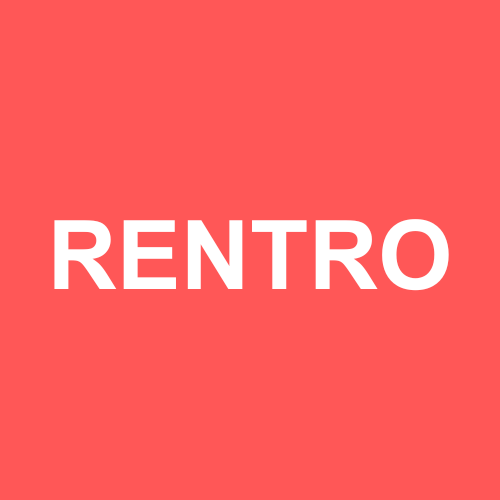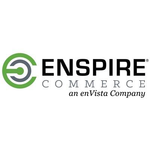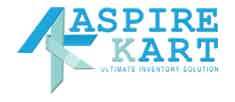Description

Productsup

Rentro
Comprehensive Overview: Productsup vs Rentro
As of my knowledge cutoff date in October 2023, I don't have comprehensive details about a product called "Rentro." However, I can provide an overview based on the widely recognized "Productsup" platform. If Rentro is a newer or less-discussed entity, details might not be readily available in my data. I'll focus on Productsup while offering general advice on assessing similar platforms.
Productsup
a) Primary Functions and Target Markets:
-
Primary Functions: Productsup is a product-to-consumer (P2C) platform designed to facilitate the management and optimization of product data, information, and content across various sales channels. Key functionalities include:
- Product Content Syndication: Streamlining the process of distributing and managing product data across multiple e-commerce channels and marketplaces.
- Feed Management: Optimization of product feeds for advertising on platforms like Google, Amazon, and Facebook.
- Data Transformation: Customizing and transforming product data to meet the specifications and standards of different channels.
- Analytics and Insights: Providing insights into product performance and channel efficiency.
-
Target Markets: Productsup primarily targets brands, retailers, and service providers that operate in the e-commerce space. This includes:
- E-commerce platforms looking for efficient syndication of product data.
- Brands wanting to ensure consistent and tailored product information across multiple digital channels.
- Marketing teams focusing on enhancing product visibility and performance through optimized advertising feeds.
b) Market Share and User Base:
-
Market Share: Productsup is considered a significant player in the product content syndication and feed management industry, though specific market share figures can vary by region and over time. It competes with other major players like ChannelAdvisor and Salsify within the P2C landscape.
-
User Base: Productsup serves a diverse range of clients from small businesses to large multinational corporations. Its user base includes retailers, brands, agencies, and partners involved in digital marketing and e-commerce.
c) Key Differentiating Factors:
-
Ease of Use and Integration: Productsup is known for its user-friendly interface and ability to integrate seamlessly with a wide array of platforms and services. This makes it accessible for users of varying technical expertise.
-
Customizable Data Transformation: The platform's strength lies in its flexible data transformation capabilities, which allow users to tailor product data according to the specific requirements of different sales channels.
-
Global Reach and Scalability: Productsup supports a global user base, offering scalability for businesses looking to expand their reach and manage a multitude of international channels and marketplaces.
General Advice on Evaluating Similar Products:
If researching a product like "Rentro" or any other similar platform, consider these aspects for comparison:
-
Functionality and Features:
- Evaluate the core functionalities and any unique features it offers compared to existing solutions.
-
Market Position and User Reviews:
- Look for market analysis or user reviews to understand the penetration, customer satisfaction, and industry position of the product.
-
Integration Capabilities:
- Check how well the product integrates with existing systems or other platforms you’re using.
-
Cost and Flexibility:
- Consider the pricing models, value for money, and the flexibility offered in terms of usage plans and contracts.
-
Customer Support and Training:
- Assess the level of customer support, training, and resources available to help users maximize the platform's potential.
For the most current and accurate details about both Productsup and platforms like Rentro, I'd recommend checking the latest market reports or directly visiting their respective websites.
Contact Info

Year founded :
2010
+49 30 60985355
Not Available
Germany
http://www.linkedin.com/company/productsup

Year founded :
Not Available
Not Available
Not Available
Not Available
Not Available
Feature Similarity Breakdown: Productsup, Rentro
As of my last update, specific details about each company's product features can change, but I can provide a general breakdown based on the typical offerings and public information available up to 2023. It's important to verify these details with the company's current product listings or demos for the most accurate and current information.
a) Core Features in Common
Productsup and Rentro may have common features, especially if they operate in similar domains like commerce solutions, data management, or digital marketing:
-
Data Integration: Both platforms likely support integration with various data sources, allowing users to import, export, and synchronize data across multiple channels.
-
Data Transformation: Offering tools to manipulate and transform data to fit different formats and requirements. This could include mapping fields, categorizing data, etc.
-
Analytics and Reporting: Providing insights and reports on data performance, user engagement, or other relevant metrics.
-
User Management: Features allowing different levels of user access and roles within the platform, enabling collaboration among teams.
-
Scalability: Both platforms likely offer scalability options to accommodate growing data and increased user demand.
b) User Interfaces Comparison
Without access to specific screenshots or user feedback, this comparison is generalized:
-
Intuitive Design: Both platforms aim to provide an intuitive and user-friendly interface, though specific design elements such as the layout, color scheme, and icons might differ.
-
Dashboard Customization: Users are likely able to customize dashboards according to personal or business preferences, although the extent of customization may vary.
-
Navigation: While both will aim for straightforward navigation, the exact user experience can differ based on how features are grouped and presented in menus or sidebars.
-
Visual Data Representation: Expect both platforms to incorporate graphical data representation tools like charts and graphs, though the style and the type of visualizations may vary.
c) Unique Features
Productsup:
-
Feed Management: Known for advanced feed management capabilities, Productsup allows businesses to optimize, validate, and distribute product content efficiently across multiple retail channels.
-
E-commerce Integration: Extensive integration options with major e-commerce platforms and marketplaces, focusing on optimizing product presence and performance.
Rentro:
-
Given the name, if Rentro is involved in property management or rental solutions, unique features might include:
-
Property Listings Management: Tools specifically tailored for managing rental listings, scheduling viewings, and tenant communication.
-
Lease and Payment Tracking: Supporting features for handling leases, rental payment processing, and financial reporting related to property management.
-
Conclusion
Understanding these similarities and differences from a generalized perspective highlights that while both platforms share a core set of features for handling data and integration, their unique value propositions cater to different market needs or industries. It's advisable to consult directly with each provider for the most detailed and accurate information regarding the current state of their features and interfaces.
Features

Product Data Management
Data Quality and Enrichment
Performance Analytics
Channel Integration

Property Management
Reporting & Analytics
Communication Tools
Maintenance Management
Financial Tools
Best Fit Use Cases: Productsup, Rentro
To provide a comprehensive understanding of the best fit use cases for Productsup and Rentro, we need to explore each platform's core functionalities, target audiences, and industry applications.
Productsup
a) For what types of businesses or projects is Productsup the best choice?
Productsup is primarily designed for businesses that need to manage and optimize their product data feeds across various channels. It is particularly advantageous for:
-
E-commerce and Retail: Businesses with large catalogs seeking to distribute and optimize product listings across multiple platforms like Google Shopping, Amazon, or social media channels.
-
Digital Marketing Agencies: Agencies managing multiple client feeds, aiming to ensure consistent and optimized product data across different platforms efficiently.
-
Brands with Global Reach: Companies that require product data management across diverse geographic markets with varied requirements and languages.
-
Multi-channel Vendors: Businesses looking to streamline their omnichannel strategies by ensuring uniform and accurate product information.
d) How does Productsup cater to different industry verticals or company sizes?
Productsup is versatile, catering to large-scale enterprises to mid-sized businesses. It provides:
-
Scalability: Suitable for businesses with extensive product catalogs requiring robust, scalable solutions.
-
Customization: Capable of addressing specific needs of industries like fashion, electronics, or groceries with tailored data optimization features.
-
Efficiency Tools: Automation and integration capabilities reduce manual work, appealing to businesses focused on operational efficiency.
Rentro
b) In what scenarios would Rentro be the preferred option?
Rentro is designed for businesses involved in the rental market. It is particularly useful for:
-
Property Management Companies: Those managing real estate rentals, needing tools for tenant screening, property listings, and lease management.
-
Equipment and Vehicle Rental Businesses: Companies that require a system to handle inventory management, booking, and customer interactions efficiently.
-
Co-working Spaces and Short-term Rentals: Venues offering flexible space solutions looking for tools to manage reservations, contracts, and client communications.
d) How does Rentro cater to different industry verticals or company sizes?
Rentro is adaptable to both small localized businesses and larger, more complex operations by offering:
-
Modularity: Features can be customized according to the unique requirements of various rental segments, from office spaces to heavy machinery.
-
Usability: Simplified interface and workflow make it suitable for businesses across all sizes by lowering the entry barrier for technology adoption.
-
Integration Options: Ability to work seamlessly with other platforms, aiding companies that require comprehensive, interconnected business solutions.
In summary, Productsup excellently serves businesses focusing on optimizing and distributing product data across numerous sales channels, making it ideal for the retail and e-commerce sectors. Rentro, on the other hand, is best suited for any business involved in the rental market, offering tailored solutions for managing properties, equipment, or vehicles effectively. Each platform supports industry-specific needs and scales according to business sizes.
Pricing

Pricing Not Available

Pricing Not Available
Metrics History
Metrics History
Comparing teamSize across companies
Conclusion & Final Verdict: Productsup vs Rentro
To provide a fair and balanced conclusion and final verdict on Productsup and Rentro, we'll consider their overall value, pros and cons, and provide recommendations for users deciding between the two.
a) Overall Value Assessment
Productsup offers a comprehensive suite of tools that focus on product data management, focusing on e-commerce solutions to enhance product marketing, streamline workflows, and improve the overall online sales process.
Rentro, in contrast, is a property rental management solution, presumably aimed at providing tools for landlords and property managers to streamline rental operations, manage tenant relationships, and optimize property management tasks.
Considering the intended purposes and utilities of these platforms are different, they each offer significant value in their respective domains. Hence, the "best overall value" should be judged on the context of the user's needs:
- For businesses in e-commerce looking to optimize product data management and marketing efficiency, Productsup likely offers better value.
- For individuals or organizations involved in property management, Rentro is more aligned with their needs and offers superior value in the property management sector.
b) Pros and Cons
Productsup
- Pros:
- Extensive e-commerce capabilities, including data feed management, marketplace integration, and analytics.
- Scalability for growing businesses.
- Comprehensive support for a wide range of marketing channels and platforms.
- Cons:
- May have a steeper learning curve for users unfamiliar with data management platforms.
- Pricing structures that may be more suitable for medium to large-sized companies rather than small-scale operations.
Rentro
- Pros:
- Robust features for managing rental properties, tenant management, and lease tracking.
- User-friendly interface tailored for property management needs.
- Potential cost savings and efficiency in managing multiple properties.
- Cons:
- Limited applicability outside of property management, making it unsuitable for non-real estate business needs.
- Dependence on specific software features that may require adaptations to fit individual property management styles.
c) Recommendations
For users trying to decide between Productsup and Rentro, here are some specific recommendations:
-
Identify Core Needs: Clearly define your core business requirements. If your primary focus is e-commerce and maximizing online sales efficacy, Productsup is the way to go. If real estate management is your central concern, Rentro will be more beneficial.
-
Consider Scalability: If you anticipate significant growth and expanded use of the platform in varied directions, consider which one better supports that growth in your industry.
-
Evaluate Ease of Implementation: Consider how quickly and easily your team can get up to speed with the software. A challenging implementation might mean higher upfront costs in time and resources.
-
Budget Considerations: Evaluate the pricing models and align them with your budget constraints and financial plans.
-
Trial and Feedback: Often, these platforms offer demos or trial periods. Take advantage of these opportunities to gain firsthand experience and feedback from your team before making a final decision.
Ultimately, your decision should be guided by the specific context of your business operations and long-term strategic goals. Each product delivers distinct advantages in its domain, so alignment with your core business activities is key.
Add to compare
Add similar companies



